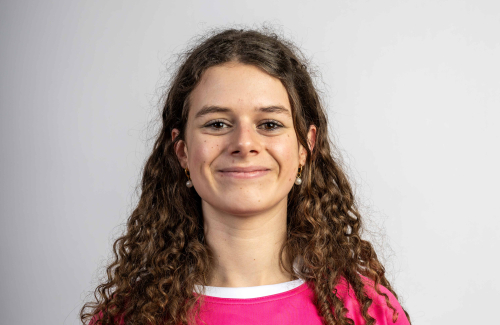More Pembroke news
Life Hacking Round Up: Laura
NEWS |
When we started the Life Hacking journey, I'll admit, I wasn't expecting much for myself. Productivity and the associated tools are a long-standing interest of mine, ever since Do It Tomorrow had a massive impact on my working life many years ago. So I approached the collection more as a reviewer than a learner, although I definitely got a lot out of a couple of the titles. I've wrapped some of the practices into my existing systems, while others were tried and discarded. Still, it's been an interesting journey.
As a side note, you'll see above that I said "systems". I'm someone who likes new things, likes change, and can have something of a short attention span. For my brain, it's important to have a set of strategies that I can cycle through. Some days, I use mind maps and colourful pens. Others, I use Important/Urgent grids. Still others, I just write a big giant list of all the things and work through the one by one. When I've got multiple projects going, I sometimes use coloured post-its and a Kanban board. There's no such size as one-fits-all, even for the same person!
So overall, what did I learn?
- Self help/productivity books are great if you read them critically. Lift out what sounds useful, leave what doesn’t. Get to know yourself a bit and figure out what works for you. If you are happy, healthy, and getting what you want out of life, then there’s no way you can be ‘doing it wrong’. Mash together styles and tips and tricks, and come up with the way you want to be.
- It’s worth doing the exercises. I liked the books that had applications, or questions, or challenges at the end. Even if you don’t stick with it, trying something for a week or a month might give you something new, without committing you to anything forever. But if you just read without trying anything out, I don’t think you’ll be able to tell whether or not it’s useful to you.
- The best books are the ones that don’t expect you to buy anything. I certainly found that the best books were the ones that encouraged me to work with what I had, not to rush out and buy a load of new gadgets or books. They felt much more applicable, as we all have our favourite tools we like to use. I already know what they are, and so liked the systems that worked with me rather than having me rush to Rymans.
- Whether you choose a system, a self help technique, a meditation practice, journaling or just spending 5 minutes a day staring at the sky, self reflection is time well spent. Turning off from everything and just breathing for a few minutes is remarkably beneficial. Especially during Oxford Terms, everyone is busy, everyone is overwhelmed, and no one has time for anything. Making that 5 minute space in your day for whatever it is that helps your brain grow is worth doing.
Oh, and
- If you’re writing a self-help book, sound very sure of yourself. I was struck reading these books how many people were saying this is THE answer to your problems. Given the vast diversity of human experience, it seems unlikely that any of them is perfect for everyone. It’s your life, people. Don’t let anyone (including me!) tell you the best way to live it.

